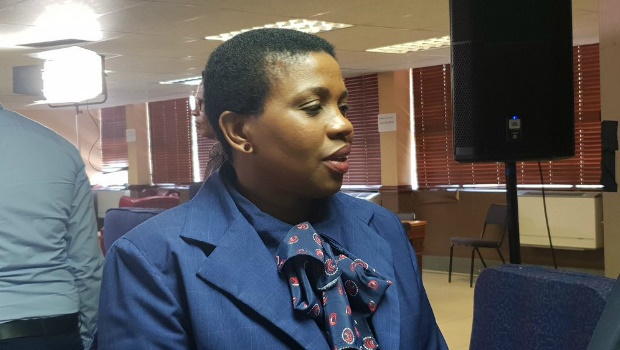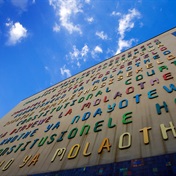
If context matters at all in law, then the context of a corrupted NPA and the need for its reconstruction should alone have justified the assumption of jurisdiction for the Constitutional Court, writes Serjeant at the Bar.
Thanks to our energetic Public Protector and her blockbuster press conferences where many South Africans watch with great expectation to hear the names of Malusi Gigaba, Faith Muthambi, Mosebenzi Zwane, Tom Moyane, Anoj Singh and Brian Molefe being uttered in her reports, sadly to no avail, much discussion of other important legal developments gets precious little airtime.
Take the recent decision of the Constitutional Court in the matter between the General Council of the Bar (GCB) and Advocates Nomgcoba Jiba and Lawrence Mrwebi. Recall that the Bar Council had sought to have the two senior members of the NPA struck off the roll of advocates. The basis of the GCB's case was that in terms of Section 7 of the Admissions Act the two, thanks to a litany of complaints and adverse findings from judges, were not fit and proper to remain on the roll of advocates.
On appeal against an adverse finding by the High Court, the Supreme Court of Appeal (SCA) split 3-2 in favour of Jiba and Mrwebi; hence the appeal by the GCB to the Constitutional Court.
The first order of business at the Constitutional Court (the only order of business as it turned out) was to determine whether it had jurisdiction to hear the appeal. At issue was the basis of the respective findings of the judges of the SCA in that the division between the two judgments turned on whether evidence of misconduct justified a finding that neither Jiba nor Mrwebi were fit and proper, that is lacked the requisite integrity to remain on the roll of advocates.
The Constitutional Court held, correctly, that no constitutional provision had been shown to be trenched by the dispute between the parties. So the jurisdictional dispute shifted to whether the matter raised an arguable point of law of general public importance which ought to be considered by the court.
Now before proceeding with our analysis, it should be noted that this provision (s167(3))b)(ii) of the Constitution) was introduced to grant the Constitutional Court extended jurisdiction; that is to be the apex court for all legal issues, thus obviating the need for litigants to show that the dispute involved a constitutional matter as defined. It was clearly designed to afford the Constitutional Court considerable flexibility in deciding which cases to hear beyond staple constitutional fare.
In this case, the court declined to hear the appeal on the grounds of lack of jurisdiction, even in terms of its extended jurisdiction. On behalf of an unanimous court, Justice Chris Jafta said: "Apart from the fact that the argument is cast in terms wider than the case pleaded here, it has no substance. First, the cause of action advanced by the GCB was that the respondents’ names should be struck off the roll because they are no longer fit and proper persons to continue to practise as advocates. This cause of action was based on section 7(1)(d) of the Admission Act. Therefore, the standard relevant to the present inquiry is limited to the determination of whether an advocate is a fit and proper person to continue to practise."
In amplification of his approach, Justice Jafta said: "The proposition that the Supreme Court of Appeal here was sharply divided on the standard to be applied in matters involving dishonesty is not correct. The divergence between the majority and the minority did not flow from the application of legal principles. It stemmed from an evaluation of the facts. In relation to Ms Jiba, the majority found that no misconduct was established in the first place. The issue of dishonesty did not arise at all. With respect to Mr Mrwebi, although the majority found that misconduct was proved it held that he was not dishonest. For its part the minority found that the facts had established dishonesty on the part of both respondents."
The cases cited by the Constitutional Court in support of its jurisdictional findings mainly turned on the question of a constitutional matter and not in respect of a matter of law of general public importance. The cited case which did canvass this question, being Booysen, turned on the fact that the issue had not been foreshadowed in argument at the eventual oral argument. In the GCB case, the heads of argument filed raised this point pertinently; hence no one was ambushed at the hearing.
A reader will struggle to divine clear reasons as to how the application of the appropriate standard for a legal practitioner to have rights of admission to a court of law and in particular senior members of the NPA does not turn fundamentally on a law of general public importance as was clearly intended as part of its purpose by the amending drafters. If context matters at all in law, then the context of a corrupted NPA and the need for its reconstruction should alone have justified the assumption of jurisdiction.
If this decision was not material for confusion, a few days later the Constitutional Court handed down a set of judgments in a competition appeal case of Competition Commission v Media 24. Four judges gave the most extensive application of what constitutes a constitutional issue and three found that the dispute raised a question of a law of general public importance. Full disclosure – this columnist knows nothing about the arcane economic concepts being debated. However, simply reading the treatment of jurisdiction contained in these two cases, one is left with a troubling thought about the increasing jurisprudential incoherence within the Constitutional Court. And that is worthy of debate.
- Serjeant at the Bar is a senior legal practitioner with a special interest in constitutional law.
Disclaimer: News24 encourages freedom of speech and the expression of diverse views. The views of columnists published on News24 are therefore their own and do not necessarily represent the views of News24.




 Publications
Publications
 Partners
Partners






















